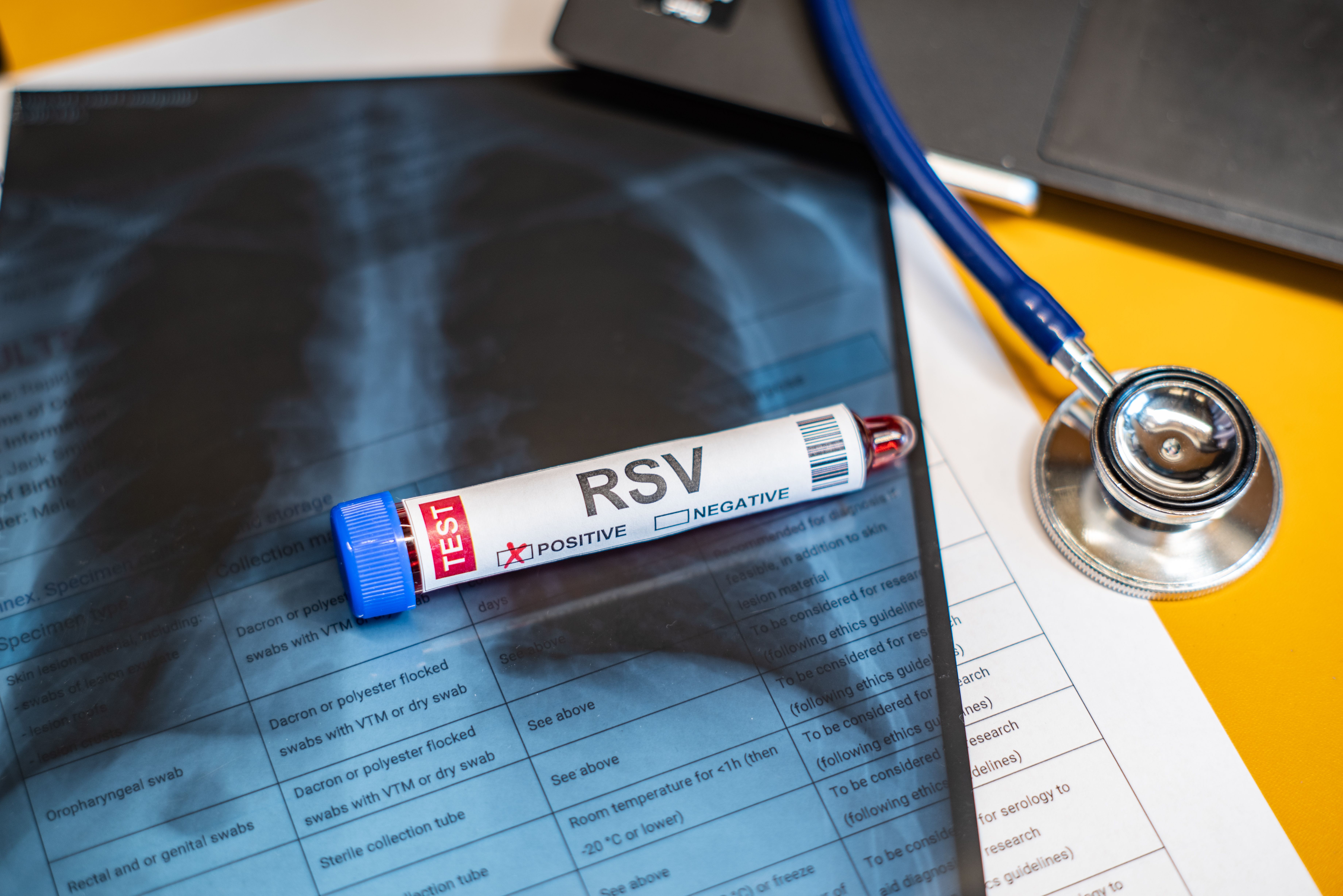
- Center on Health Equity & Access
- Clinical
- Health Care Cost
- Health Care Delivery
- Insurance
- Policy
- Technology
- Value-Based Care
RSV Vaccine Proven Effective in Reducing RSV-Related Hospitalizations
Respiratory syncytial virus (RSV) vaccination is approximately 77% to 81% effective against hospital and emergency department encounters among older adults, study finds.
This article was originally published on Pharmacy Times®.

A new study findings published in The Lancet assessed the effectiveness of respiratory syncytial virus (RSV) vaccines against RSV-associated hospitalizations and emergency department encounters among individuals at least 60 years of age. The study was conducted to confirm RSV vaccine effectiveness found in clinical trials against lower respiratory tract disease using real world data.1
According to the CDC, the US experiences up to 160,000 hospitalizations and around 10,000 deaths among older adults due to RSV infection each year. Symptoms typically present like a mild cold but could become more severe among older adults.2
In June of 2023, the CDC recommended individuals 60 years and older to receive an RSV vaccine after proving to be effective against RSV-associated lower respiratory tract disease in clinical trials.1,2 The trials displayed that RSVPreF3 (Arexvy; GSK) provided 87.5% efficacy against RSV-associated lower respiratory tract disease and RSVpreF (Abrysvo; Pfizer) provided 84.6% efficacy.3
However, researchers found that there was limited real-world data on the vaccine’s effectiveness. To address the gaps in research from the clinical trials, investigators assessed hospitalizations and emergency department encounters among individuals that reported RSV illness for patients that were at least 60 years of age.1,2
The researchers conducted a test-negative design analysis in an electronic health records-based network in 8 US states, which contributed data on inpatient, emergency department, and urgent care encounters among individuals that experienced RSV-associated illness from October 1, 2023, to March 31, 2024. The study authors noted that status of RSV vaccination was confirmed from electronic health record documents, state and city immunization registries, and medical claims.1,3
According to the study authors, vaccine effectiveness was measured by an individual’s immunocompromised status, which compared the odds of vaccination among RSV-positive cases and RSV-negative cases. The estimated effectiveness was adjusted for age, race, ethnicity, sex, calendar day, social vulnerability index, amount of non-respiratory medical conditions, presence of underlying respiratory medical conditions, and geographical region.
The results found that, among 28,271 hospitalizations for RSV-like illness in individuals at least 60 years of age and were not immunocompromised, vaccine effectiveness was 80% against RSV-associated hospitalizations and 81% effective against RSV-associated critical illness. Further results found that vaccine effectiveness was 73% among 8435 individuals that were immunocompromised. Additionally, among 36,521 emergency department encounters for RSV-like illness, vaccine effectiveness was 77% in individuals that were immunocompromised, against RSV-associated emergency department encounters.
The findings suggest that RSV vaccination was proved to be 77% to 81% effective against associated critical illness, hospitalization, and emergency department encounters in the 2023-2024 season. This marked the first RSV season following the release of the approved vaccines, emphasizing their success.
References
1. Payne AB, Watts JA, Mitchell PK, et al. Respiratory syncytial virus (RSV) vaccine effectiveness against RSV-associated hospitalisations and emergency department encounters among adults aged 60 years and older in the USA, October, 2023, to March, 2024: a test-negative design analysis. Lancet. 2024;404(10462):1547-1559. doi:10.1016/S0140-6736(24)01738-0
2. Ferruggia K. RSV Vaccination Could Decrease Hospitalization Among Adults 60 Years and Older. Pharmacy Times. News release. September 6, 2024. Accessed November 13, 2024. https://www.pharmacytimes.com/view/rsv-vaccination-could-decrease-hospitalization-among-adults-60-years-and-older
3. Respiratory syncytial virus (RSV) vaccine effectiveness against RSV-associated hospitalisations and emergency department encounters among adults aged 60 years and older in the USA, October, 2023, to March, 2024: a test-negative design analysis. Science Direct. News release. October 19, 2024. Accessed November 13, 2024. https://www.sciencedirect.com/science/article/abs/pii/S0140673624017380
The Breakdown: Breast Cancer Research Awareness Day
August 19th 2025Breast cancer is the second most common cancer among women and the second leading cause of cancer-related deaths among women in the US. In light of Breast Cancer Research Awareness Day, The American Journal of Managed Care® breaks down the most recent advancements in breast cancer prevention, screening, and therapies.
Listen
Politics vs Science: The Future of US Public Health
February 4th 2025On this episode of Managed Care Cast, we speak with Perry N. Halkitis, PhD, MS, MPH, dean of the Rutgers School of Public Health, on the public health implications of the US withdrawal from the World Health Organization and the role of public health leaders in advocating for science and health.
Listen
The Breakdown: Breast Cancer Research Awareness Day
August 19th 2025Breast cancer is the second most common cancer among women and the second leading cause of cancer-related deaths among women in the US. In light of Breast Cancer Research Awareness Day, The American Journal of Managed Care® breaks down the most recent advancements in breast cancer prevention, screening, and therapies.
Listen
Politics vs Science: The Future of US Public Health
February 4th 2025On this episode of Managed Care Cast, we speak with Perry N. Halkitis, PhD, MS, MPH, dean of the Rutgers School of Public Health, on the public health implications of the US withdrawal from the World Health Organization and the role of public health leaders in advocating for science and health.
Listen
2 Commerce Drive
Cranbury, NJ 08512
AJMC®
All rights reserved.